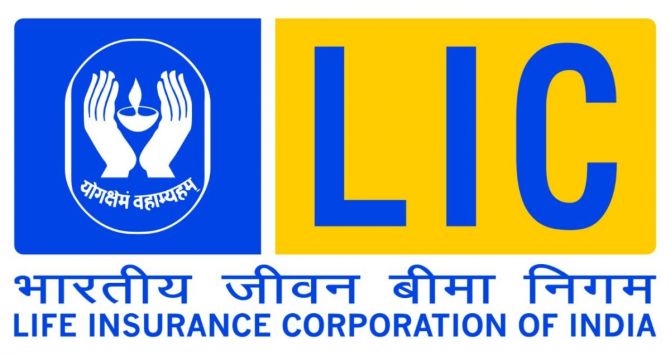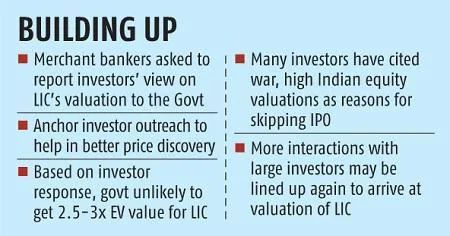Global investors have cited the ongoing war and high valuations of Indian equity markets as a reason to skip the IPO.

The Centre has asked merchant bankers to seek feedback from anchor and large investors on the valuation at which they would participate in Life Insurance Corporation of India's initial public offering.
After merchant bankers finalise the valuation, approval would be sought from the ministerial panel comprising Union Finance Minister Nirmala Sitharaman, Transport and Highways Minister Nitin Gadkari and Commerce and Industries Minister Piyush Goyal.
The government has purportedly changed course in light of the market volatility sparked by the Russia-Ukraine war, said an official.
"It wants to give an ear to all investors, and how they value LIC, as it needs large investors to pull off the mega IPO," he added.

Many global investors approached by the government have cited the ongoing war and the high valuations of Indian equity markets as a reason to skip the IPO.
They feel the war has made investment opportunities in other economies attractive.
Foreign investors pulling out money from Indian equity markets has also been a concern for the government.
However, Sitharaman said investments by retail investors have helped absorb the shock of outflow of foreign investments.
Based on the inputs received from investors, the valuation for LIC is unlikely to be as high as two-and-a-half or three times its embedded value as was expected earlier, the second official said.
The embedded value of LIC has been projected at Rs 5.4 trillion as of September.
After the outreach, there would be more interactions with large investors again to justify valuations of LIC as it is the largest insurer, and far ahead of the competition in size and market share, the first official quoted above said.
LIC is the tenth largest life insurer globally by total assets, and had a market share of 66 per cent in FY21.
The discussions with anchor investors will help in price discovery, a lesson the government learnt from when General Insurance Corporation of India chose not to go for anchor investors and instead offered a discount to retail investors. The insurer's shares tanked at listing.
The government now has a proper mechanism in place, unlike in the past when valuation concerns led to shares of public sector insurance companies plummeting on debut.
Since then, the listing of other public sector companies have had anchor books, based on the learning that anchor investors dictate correct valuations.
Feature Presentation: Aslam Hunani/Rediff.com












 © 2025
© 2025